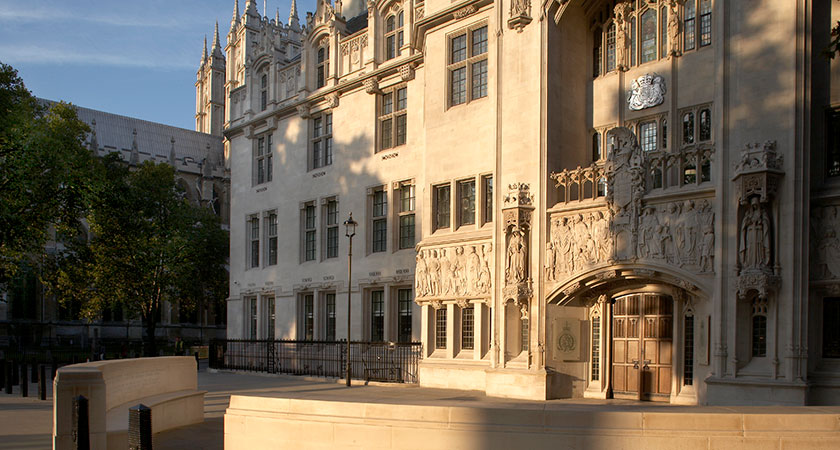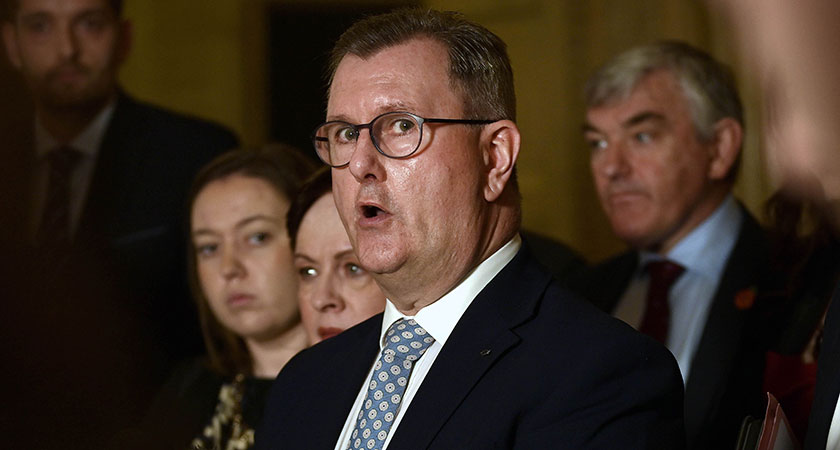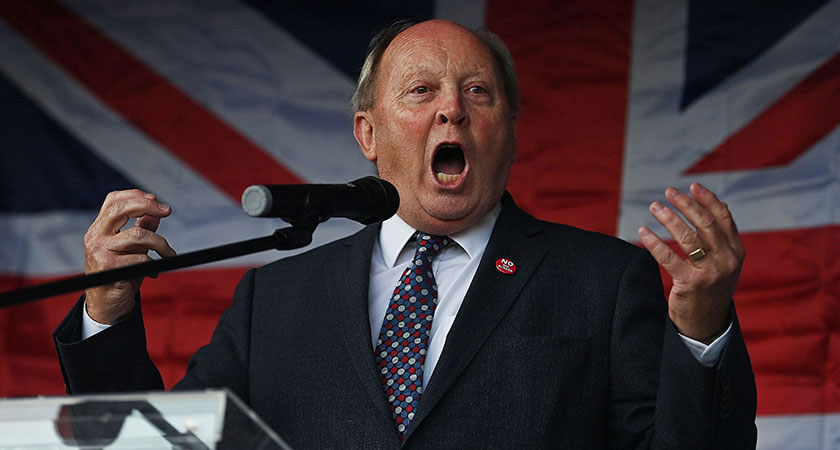SINN FÉIN and the SDLP have welcomed a ruling by Britain's Supreme Court that the Northern Ireland Protocol is lawful.
Unionist politicians had challenged the legality of the Protocol, which resulted in checks being carried out on goods entering Northern Ireland from Great Britain following Brexit, effectively creating a sea border.
The appellants contended that the Protocol was incompatible with the Acts of Union and the Northern Ireland Act and that the 2020 Regulations that allowed the Assembly to vote on the Protocol were unlawful.
The challenge had previously been rejected by Belfast's High Court and the Court of Appeal.
While nationalist parties welcomed the ruling, unionist politicians have said the Protocol remains a threat to Northern Ireland's place within the United Kingdom.
Economic stability
Speaking after the ruling, Sinn Féin MLA Declan Kearney accepted the Protocol wasn't perfect but that there is 'no creditable alternative'.
"Brexit has caused seismic political division, and those who championed it must bear responsibility for this," he said.
"The Protocol limits the damage caused by Brexit and while imperfect it is clearly necessary.
"No credible alternative to it exists which can protect our economic stability."
He added: "Now that legal clarity has been confirmed, it is time to move forward politically and ensure that a deal between the British Government and EU to deliver pragmatic and durable solutions is secured without delay that makes the Protocol work better for everyone."
Meanwhile, SDLP MLA Matthew O'Toole said that he appreciated the concerns of the appellants but stressed it was time to move forward with Europe and domestically.
He said: "Following this judgment, it is now critical that the EU and UK negotiating teams reach a comprehensive resolution that protects our unique access to the Single Market for goods while addressing the concerns around protocol implementation that have given rise to sincere objections related to trade barriers and identity issues in the unionist community.
"The people of Northern Ireland deserve government.
"That is the challenge we should all be working together to address, for patients waiting for a hospital appointment, for families waiting for cost-of-living support, for parents who need help with the cost of childcare."
'Existential threat'
DUP leader Jeffrey Donaldson accepted the ruling but said the legal challenges highlighted the opposition unionists have towards the Protocol.
"A solution to the Protocol was never going to be found in the courts, but the cases have served to highlight some of the reasons why unionists have uniformly rejected the Protocol," said Donaldson.
"The Government must consider this judgement, their own arguments to the court and take the steps necessary to replace the Protocol with arrangements that unionists can support.
"The Protocol represents an existential threat to the future of Northern Ireland's place within the Union.
"The longer the Protocol remains, the more it will harm the Union itself."
He suggested that for as long as the Protocol remained, power-sharing was unlikely to return to Stormont.
"Not one unionist MLA or MP supports the Protocol," he added.
"The idea that one section of our people will dominate the other and ignore the concerns of unionists is the opposite of power-sharing and will never produce durable or balanced outcomes.
"There will be no solid basis for an Executive and Assembly until the Protocol is replaced with arrangements that restore NI's place in the UK internal market and our constitutional arrangements are respected."
TUV leader Jim Allister, one of the appellants, said the ruling didn't change the Protocol's 'political unacceptability' and echoed Donaldson's view that there would be no imminent end to the stalemate at Stormont.
"If anything, the Supreme Court ruling must embolden the political campaign against the Protocol, because that is now the critical arena of challenge," he said.
"There can be no let up or discharge in the political war against the Protocol, else our place in the United Kingdom will never be restored.
"It is hard to see how Stormont ever returns in circumstances where Art 6 of the Acts of Union is in suspension."




